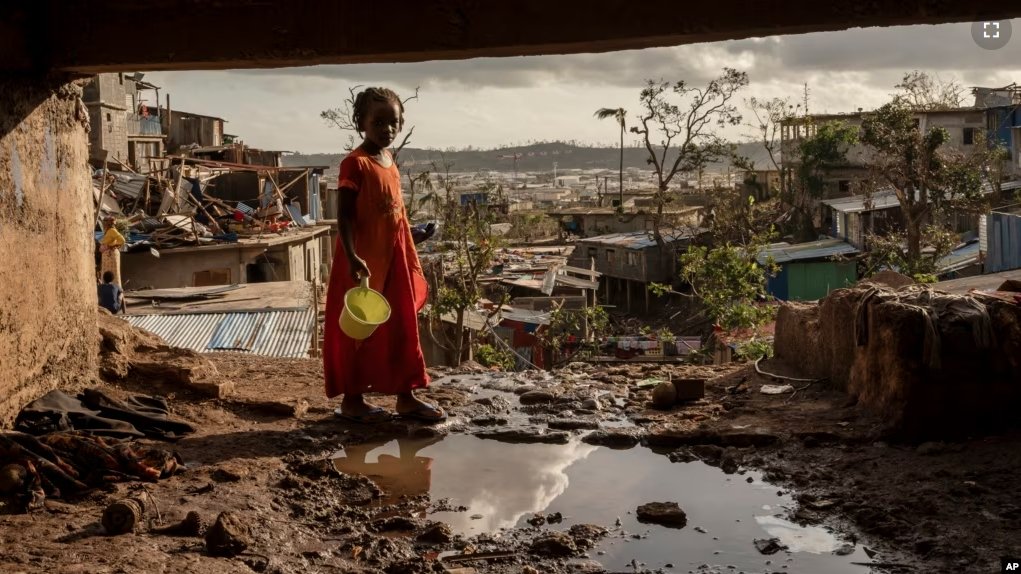A United Nations report has found that extreme weather interrupted the schooling of at least 242 million children last year.
The weather included severe events such as heatwaves, cyclones and extreme dryness and flooding, the U.N.’s Children’s Fund (UNICEF) said. Students in 85 nations were affected.
UNICEF said weather-related interruptions amounted to one in seven school-aged children across the world being kept out of class at some point during 2024.
The report also noted that some countries said that hundreds of their schools were destroyed by weather. Nations in Asia and sub-Saharan Africa were hit especially hard. But the report said other parts of the world also experienced problems.
The report noted that heavy rains and flooding near the end of 2024 disrupted school for more than 900,000 children in Italy. And in Spain, thousands of students had their classes canceled because of severe flooding.
UNICEF reported that southern Europe experienced deadly floods and parts of Asia and Africa suffered flooding and cyclones. But heatwaves, the report noted, were “the predominant climate hazard shuttering schools last year.”
More than 118 million children had their schooling interrupted in April alone, the report said. Those interruptions were linked to heatwaves in parts of the Middle East and Asia. School was interrupted because temperatures rose above 40 degrees Celsius.
UNICEF executive director Catherine Russell said in a statement the report shows that the world’s children today “are more vulnerable” to extreme weather-related events than in the past. She added, “Children cannot concentrate in classrooms that offer no respite from sweltering heat, and they cannot get to school if the path is flooded, or if schools are washed away.”
Around 74 percent of the children affected in 2024 were in middle- and low-income countries, the report said. UNICEF said this demonstrates how climate extremes continue to have a damaging effect on the world’s poorest countries.
In Pakistan, flooding ruined more than 400 schools in April. And Afghanistan experienced heatwaves followed by severe flooding that destroyed more than 110 schools in May. Months of drought in southern Africa threatened schooling for millions of children, the report added.
More recently, the French territory of Mayotte in the Indian Ocean off Africa was left in ruins by Cyclone Chido in December. Cyclone Chido also destroyed more than 330 schools and three education departments in Mozambique.
The U.N. children’s agency report stated that the world’s schools and education systems “are largely ill-equipped” to deal with the effects of extreme weather.
I’m Bryan Lynn.
The Associated Press reported this story. Bryan Lynn adapted the report for VOA Learning English.
_______________________________________________________
Words in This Story
interrupt – v. to stop an action or activity, usually for a short period of time
cyclone – n. a violent storm with strong winds that move in a circular motion
predominant – adj. more important or noticeable than other things
hazard – n. something dangerous
shutter – v. to close
vulnerable – adj. easy to hurt or attack physically or emotionally
concentrate – v. think very carefully about something without doing anything else
respite – n. a short period of rest from something difficult or unpleasant
drought – n. an extremely dry period of weather with little rain and a shortage of water
